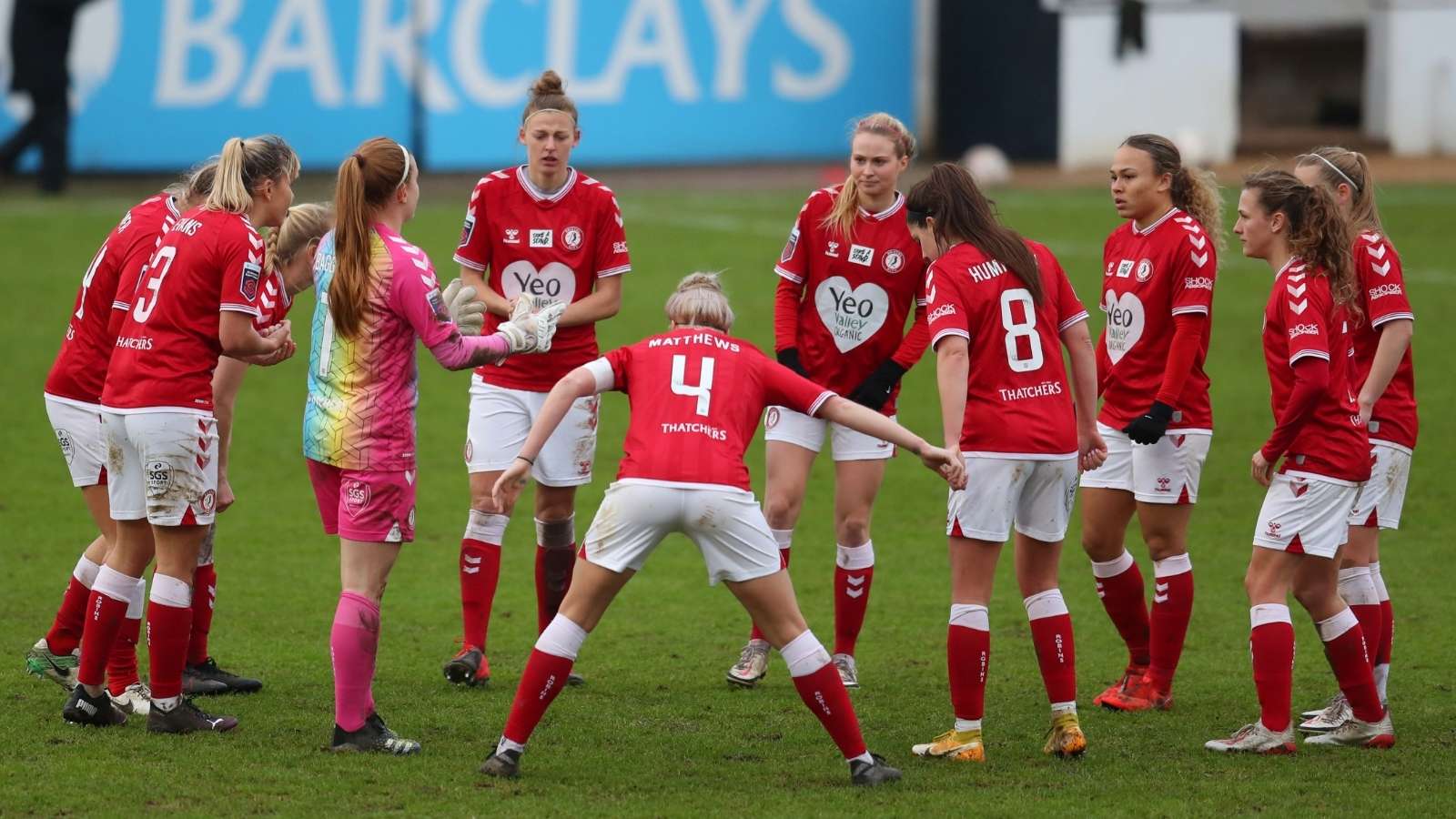There is never a good time to be relegated, but this is certainly not the year for it in the Women’s Super League.
Birmingham City, Bristol City or Aston Villa will be demoted on Sunday, but the likely consequences across the clubs could not be more different.
With a massive injection of cash from an historic three-year TV deal with Sky, worth £24 million, to come next term, none will want to miss out. Championship clubs will still receive some of that money, but only a quarter of what those at the top table will share.
For clubs like Birmingham and Bristol, who have two of the smallest budgets in the WSL, those funds would be absolutely huge and could help them close the gap on those that have raced away from them in recent years.
Fortunately for Birmingham, it would take an extraordinary series of events to relegate them. They would need to lose to Tottenham, who are only two places and three points above them, and see the two teams below them win - Villa facing a particularly tricky task against Arsenal - for such an outcome to occur.
They should not even be in this relegation battle, such is the admirable manner in which they have performed despite manager Carla Ward arriving in the summer with just eight senior players on the books.
However, a one-point deduction on Friday evening for a misunderstanding regarding a player's suspension means they are just about involved.
Bristol start the day bottom of the table, winless since a 3-2 win over Reading in early March.
The Vixens have constantly defied the odds this season, most notably reaching the Continental Cup final. On Sunday, they need to do so again. A victory over Brighton will not secure safety for them alone – they need Arsenal to do them a favour against Villa, or Tottenham to beat Birmingham, too.
 Goal
Goal
Should they fall short, the consequences would likely be much more significant than if Villa did.
There would of course be mass disappointment and frustration at the club dropping back into the Championship, just a year after being promoted, but the support behind the team would not let them stay there for long.
Villa took the second tier by storm last term after announcing they would become a full-time professional team before the season began, the only one in the division. The club are clearly well committed to their women’s team and are showing it with the resources provided to them. The vision is unlikely to change should they be relegated.
“It can go as far as we want it to,” midfielder Emma Follis said at the beginning of the season, talking about the club’s ambition. “I believe we can become one of the best clubs. That is the ambition of the club, the ambition of Christian [Purslow, chief executive], Eni [Aluko, director of women’s football] and everyone involved.”
For Bristol, the situation is much different. Previously known as Bristol Academy, they were renamed Bristol City in 2016, have regularly played games at Ashton Gate, the men’s 27,000-capacity ground, and this season, when manager Tanya Oxtoby announced she was pregnant, the club did something amazing that has never been done before – they brought in another manager, Matt Beard, a two-time WSL champion, as maternity cover.
However, with a much smaller budget that other clubs, it would not be a shock if they were to go part-time should they drop out of the top-flight.
They are expected to struggle to keep hold of Ebony Salmon, their wonderfully talented No.9 who just turned 20 years old, this summer regardless of whether they survive. Should they drop down a level, chances are she won’t be the only key player to be targeted by those remaining in the WSL.
The ever-increasing professionalism in the Championship makes you wonder when Bristol would be back, too, if they were to go part-time.
 Getty
Getty
This year, Leicester did exactly what Villa did last term to secure promotion and went full-time. Coventry United have ambitions of turning professional in the near future, while Charlton’s women’s team has been reabsorbed by the club in a show of their support. Durham and Sheffield United, two of this season’s top four, also have big plans for the future, with the Blades’ boss Neil Redfearn signing a two-year deal just this week. Lewes are working towards promotion, too.
The fact Liverpool have struggled this year, as a full-time, professional team that didn’t lose too many players after relegation, shows how difficult the Championship is becoming to navigate.
It would certainly be sad to see Bristol leave the WSL. After all, they are a founding member of the league and a team who, in 2014-15, represented it in the UEFA Women's Champions League semi-finals. For several years, they were at the forefront of the English women’s football scene, their fantastic youth set-up and focus on developing players paying dividends.
But - like Birmingham, a mainstay in the top-flight since 2002 - they have been usurped over the years by clubs seriously investing in their women’s teams. Clubs like Chelsea and Everton, now two of the most well-backed teams in the league, finished in the bottom half of the WSL when Bristol secured European football in 2013. Manchester City weren’t even in the division – now they’re one of the best teams in the country.
Manchester United, currently fourth in the table, didn't even have a women's team. Should Villa secure safety at the expense of Bristol this weekend, it would be just another example.
Hopefully, if that is the case, it can act as a catalyst and see the club increase their investment to catch up to the clubs they were once leading.
